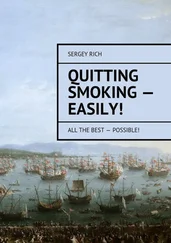I knew long ago that I would come to this pass, when death alone would be left for me, as a means of satisfying my mind and my heart. For a long time, I lived from one satisfaction to another — my profession, my wife, my family, my increasing success as a doctor. Then one day I became wholly aware of what all deliberately forget — that life is not a self-contained sphere, which exists unendingly. I knew to my fingertips that I must die, as I had seen so many die. This me must die, this body must rot; I would see, hear, feel, taste, touch, think, no more. For a year I was a prey to the worst despondency. Nothing had meaning for me. Then I was visited by the first of repeated special experiences and all was changed until now. Do you understand me? I cannot return to my old unrest and uncertainty. What does one have, having lived long? What is the virtue and fruit of old age? A bedpan, a failing memory, a drooling mouth, the sense of one’s own inadequacy at last. But I am going to find out for myself once and for all. There is only one means of knowing.
DR. NEWMAN: I believe that you were right! I accept your belief! One example proves nothing.
DR. BERGEN: No! You are insincere! I hear the duplicity in your voice. I am faced by my own doubt. I have the will to know and nothing else. Death is the only satisfaction left to me. The stench of this life offends me too much at last. I am done. Whereas the consequence is final and the exodus is irreparable; whereas the notion is unanalyzed, the dream unexhausted, the procedure without rationale, the belief a verbalism, there remains the complete conclusion of utter light or at least a little unnervous peace. I will feel the parts of my body one last time, for my own patience is intolerable to me; I can no longer endure my own thoughts, I have much to say, but my own speech appalls me. There is a fine abyss which waits to receive me and please me and satisfy me as never before.
MARTHA [ moving towards him ]: Father! Father!
DR. BERGEN: Stand back, Martha. I am faced with my own ignorance. But I am going to find out for myself once and for all!
[ He jumps to his death as several scream. MARTHA , running from among them, jumps up and also leaps from the parapet. ]
DR. NEWMAN: Nothing is left to say, everything to do, question my own heart, justify myself, if I can. Belief and knowledge consume the heart of man.
RAKOVSKY [ as if in echo ]: Knowledge and belief devour the mind of man.
ANTHONY: Belief, knowledge, and desire — desire most of all.
DR. NEWMAN: Man destroys his own heart.
CURTAIN
1. believed to be God by thousands : Allusion to Marcus Garvey (1887–1940), leader of the first important U.S. black nationalist movement, based in New York City’s Harlem.

TITLE PAGE OF THE ORIGINAL
NEW DIRECTIONS EDITION, 1941.
It is the historic nature of all particulars to try to prove that they are universal by nature—
ENCYCLOPEDIA BRITTANICA
Wer sass nicht bang vor seines Herzens vorhang?
Der schlug sich auf: die Szenerie war Abschied….
RILKE
PERSONS OF THE PLAY
Shenandoah Fish: Sarah Harris
Elsie Fish: Edna Harris
Mrs. Goldmark: Jack Strauss
Jacob Fish: Harry Lasky
Walter Fish and wife: Edith Strauss
Joseph Fish and wife: Bertha Lasky
Leonard Fish: The baby Shenandoah
Dolly Fish: Dr. Adamson
[Enter SHENANDOAH, to the right. A spotlight shines on him as the theater is darkened and the curtain rises on a darkened stage. ]
SHENANDOAH:
This was the greatest day of my whole life!
I was eight days of age:
Twenty-five years
Consume my being as I speak (for we
Are made of years and days, not flesh and blood),
And no event since then is as important!
In January 1914 a choice was made
Which in my life has played a part as endless
As the world-famous apple, eaten in Eden,
Which made original sin and the life of man
— Or as the trigger finger with a bitten nail
Which Prinzip’s mind was soon to press
In Sarajevo, firing at Verdun,
St. Petersburg, Vienna, and Berlin—
And like the length of Cleopatra’s nose,
And like the grain of sand in Cromwell’s kidney,
As Pascal said, who knew a thing or two,
Or like the pinpoint prick which gave the great
Eloquent statesman lockjaw in the prime of life
(O Death is eminent, beyond belief!)
— Return with me, stand at my point of view,
Regard with my emotion the small event
Which gave my mind and gave my character,
Amid the hundred thousand possibilities
Heredity and community avail,
Bound and engender,
the very life I know!
[ The stage lights up and the curtain rises. ]
The curtain rises on a dining room
In the lower middle class in 1914:
Gaze briefly at the period quality,
Not at the quaintness, but at the pathos
Of any moment of time, seen in its pastness,
The ignorance which prophet, astrologist,
And palmist use as capital and need
— The dining room contains in vivid signs
Certain clear generals of time and place:
Look at the cut glass bowls on the buffet,
They are the works of art of these rising Jews,
— The shadow of Israel and the shadows of Europe
Darken their minds and hearts in the new world.
They prosper in America. They win the jewels
(My mind intends no pun, but falls on one:
Jews are no jewels, as Angles are no angels.)
Of cut glass bowls to place upon their tables,
Moved by the taste and trend of the middle class—
[ Enter ELSIE FISH with her child in a bassinet and EDNA GOLDMARK , her next door neighbor. Both are young married women, but MRS. GOLDMARK is plainly the older of the two. As SHENANDOAH speaks, ELSIE is engaged in tending the baby, while MRS. GOLDMARK regards her. ]
Explain the other furniture yourself,
But lift your mind from the local color,
For the particular as particular
Is not itself, as a house is not its front,
And as a man is not his flesh:
Come now,
See the particular as universal,
Significance like sunlight, the symbol’s glory,
As two crossed sticks of wood shine with the story
Of Jesus Christ and several institutions,
— The union of particular and universal,
That’s what one ought to see, as Aristotle
Has said for years:
he knew a thing or two—
[ During the speeches of all the characters except SHENANDOAH, there is a systematic shift back and forth from formal speech to colloquial speech, a shift which is reflected in their actions, and echoed, so to speak, in the shift from verse to prose. ]
ELSIE FISH: My father-in-law is coming to see me before the ceremony. I wonder what he wants. When he called, he was very disturbed and upset.
MRS. GOLDMARK: Maybe he wants to spend some time with his new grandson before the ceremony. We do not know what it is to be a grandparent, we are too young. Just think, a grandparent has all the pleasure, none of the pain and expense.
ELSIE FISH: I do not think he is so pleased. This is no novelty to him. He has been made a grandparent five times already by his other sons and daughters. Do you know, he said it was a question of life and death that he wanted to speak to me about. What can it be? But he is always like that, always nervous, always disturbed.
Читать дальше













